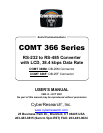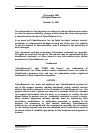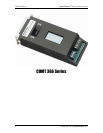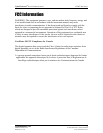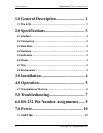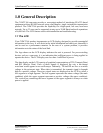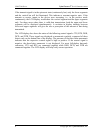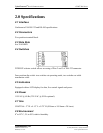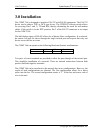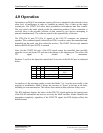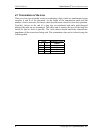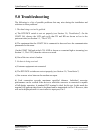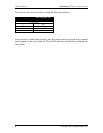
CyberResearch
®
Serial Communications COMT 366 Series
CyberResearch, Inc. 1
25 Business Park Drive P: (203) 483-8815; F: (203) 483-9024
Branford, CT USA www.cyberresearch.com
1.0 General Description
The COMT 366 converter provides a convenient method of interfacing EIA-232-based
equipment with an RS-485 network using a half-duplex, single twisted-pair transmission
protocol. The COMT 366 provides the capability for a high-speed, low cost, local area
network. Up to 32 users can be supported at rates up to 38.4K Baud and total separations
of 6,000 feet. The LCD feature assists with installation and troubleshooting.
1.1 The LCD
Your COMT 366 product incorporates an LCD display designed to provide meaningful
information to the user. It will assist in the initial installation and check out; thereafter it
can be used as a performance monitor. In the case of a system problem, it provides
information as to the status of the local link.
The logo shown on the LCD display indicates the unit is powered. For power-stealing
devices such as a converter, it is an indication that sufficient power is being applied to
operate the device. The LCD display uses less than 1 milliWatt of power.
The data display on the LCD consists of graphical representations of TD (Transmit Data)
and RD (Receive Data). Each of these signals is displayed the way a bit-change
waveform would appear on an oscilloscope. Ordinarily, TD and RD are low or a minus
voltage in the quiescent state. When data is transmitted, the transmit signal is brought
high to a positive voltage. These two signal states are displayed on the LCD by either a
low segment or a high segment. The low segment represents the minus voltage (the mark
condition) while the upper segment represents a positive voltage (the space condition).
The vertical bar connecting the lower segment to the upper segment is always on when
power is applied.



